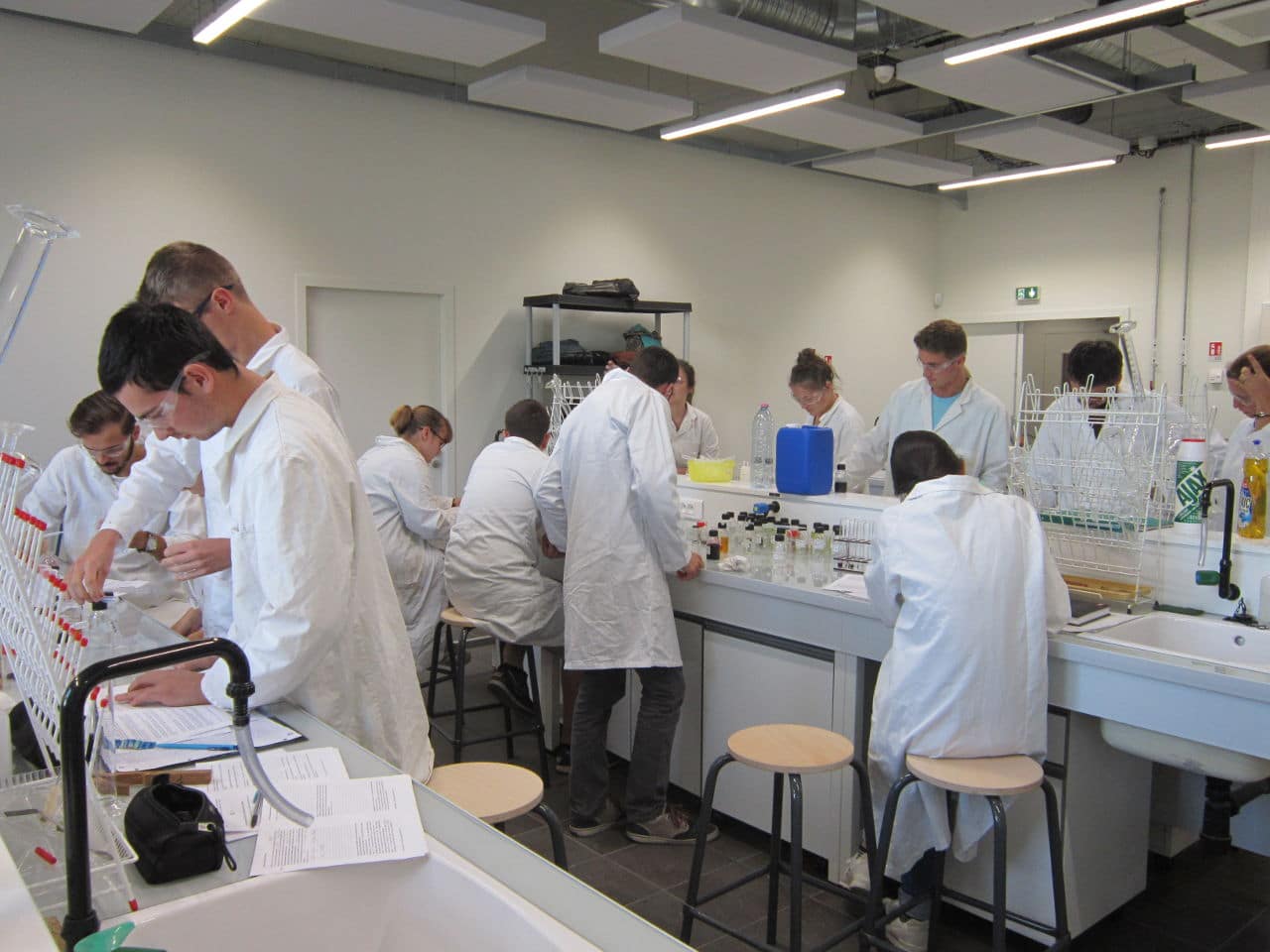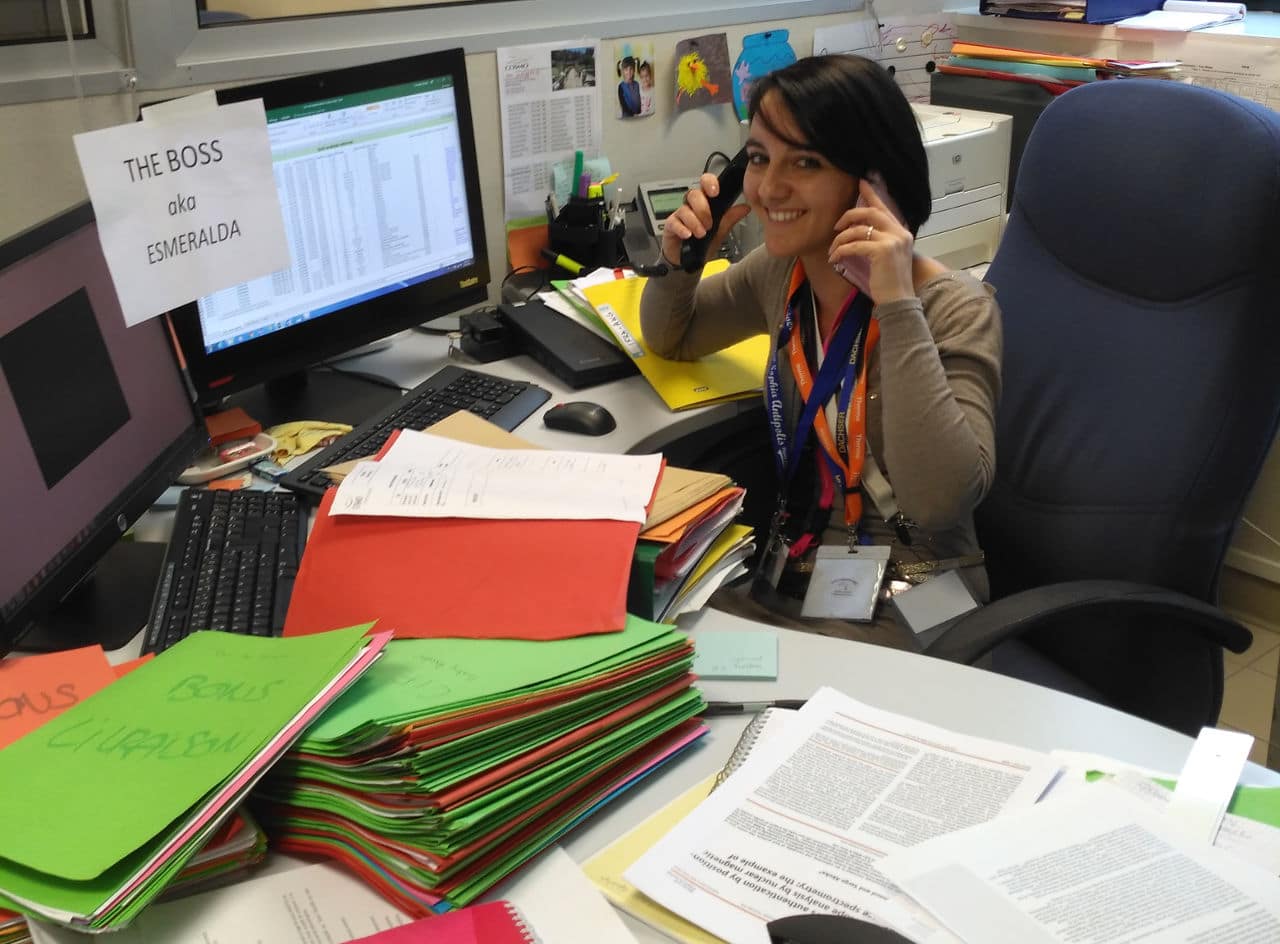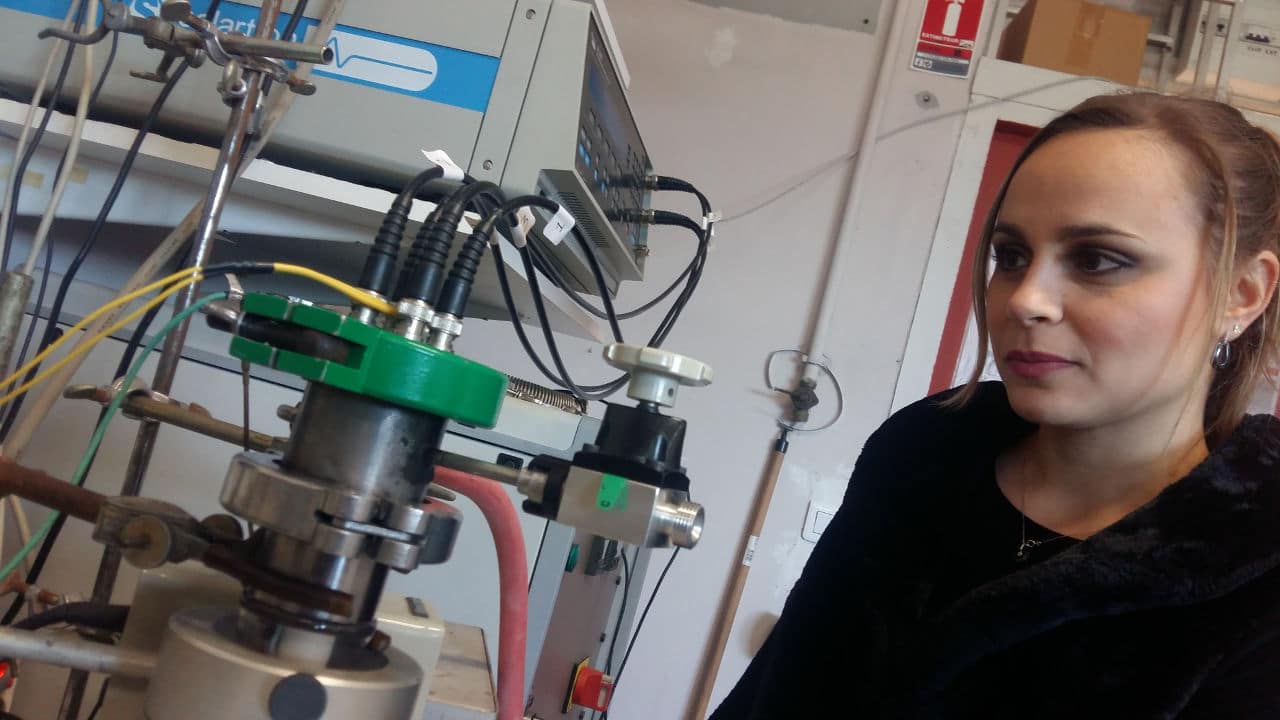A Master's degree in chemistry opens doors for you
The Master's degree in Chemistry from the University of Montpellier leads to everything. And can open many doors for you in the job market...
It is the only one Master's degree in chemistry from the Montpellier site, but he has broad shoulders: no less than 11 different courses offered in M2, and a teaching team of 200 lecturers... A master's degree “rather sturdy" says Joulia Larionova, its manager. The idea: "sSpecialize or acquire new skills in the fields of chemistry and its interfaces.”.
86% of graduates find a job within 6 months
A program as simple as it is broad: "For students, the range of options is enormous, as chemistry is involved in just about every field of human activity. Upon graduation, the chemical industry is of course waiting with open arms, but beyond that, there are countless opportunities available on the job market. "
While the 11 courses offered provide 11 often very different adventures, there is one common reality: real job opportunities, whether in scientific management in research, research and development, production or quality control, or even technical sales management. The employment rate speaks for itself: six months after graduation, 86% of students are placed*.

She is now an expert in smell and bio-based products. At the time when Esmeralda Cicchetti Gonzales was studying in Montpellier, the Master's degree in Chemistry from UM does not yet exist. “I studied chemical engineering at the University of Montpellier, specializing in "flavors and fragrances," which ended at the master's level: the equivalent of today's ICAP Master 1." said the young woman.
Very rich chemistry
She is pursuing these studies immediately after completing her high school diploma in biology.After high school, a degree in chemistry is recommended: it offers a wide range of career opportunities.At the time, Montpellier, along with Le Havre, offered one of the only recognized training programs in this field.
Born in Grasse, Esmeralda took her first steps in the world capital of perfume. They quickly led her to her grandmother, a chemist who ran a laboratory that tickled the nostrils. Esmeralda remembers it clearly; her madeleine smells of strawberry, rose, and jasmine...
The Montpellier team is therefore a “back to basics"And the opportunity to discover that the sense of smell does not only open up Proustian reminiscences. But also subtle pleasures, as cerebral as they are sensual: "break down complex information, analyze, understand a smell...“
People don't use their noses enough! she pleads. Yet it is the gateway to a universe that inspires dreams—not least because it remains largely unexplored. Major discoveries about olfactory receptors are very recent.“
Universe to explore
Education at the University of Montpellier? “Very comprehensive. It was also very time-consuming! At the time, I didn't necessarily understand the value of absorbing so much information, but it all proved extremely useful later on. The training focused on making us independent. That's not always easy when you're a student, but it's a great learning experience.“
Head of his own analysis laboratory for five yearsEsmeralda returned to Grasse, where she turned her passion into a career. “I created my lab from scratch, recruited the team, acquired the instruments, and implemented my own methods...A laboratory focused entirely on nature, where innovative natural extracts for perfumery and cosmetics are analyzed.
This makes the challenge even greater: “Compared to synthetic products, natural extracts are incredibly complex! With hundreds of components, they are much more difficult to analyze. The challenge is a daily one. Here, we explore the complexity of nature.“
Research
The master's program has another distinctive feature: its strong focus on research. "Montpellier's research in this field is internationally recognized. It is also highly structured: the master's program draws on the excellence of the four research institutes** that make up the Balard Chemistry Cluster. This gives us access to high-performance equipment, with high-tech technical facilities housed on the cluster's brand-new campus."
It is therefore not surprising that a high percentage of graduates aspire to pursue a career in research: 44% of them* develop a taste for university life and continue their studies with a doctorate. This path allows them to aim for careers asProfessor, researchers, research engineers, and more.

After completing her master's degree in chemistry, Vanessa Ortiz turned her attention to research. It was a vocation she discovered late in life, during a memorable second-year internship in Melbourne, Australia...
Vanessa Ortiz is a chemist through and through. But she focuses on the greener side of the discipline: for her, climate change and the state of the planet are crucial issues. She therefore chose to focus her master's degree in chemistry at UM on the environment, opting for the "Materials science for energy and sustainable development”.
“Chemistry is in everything!”
For this scientist at heart, it all began at theSète University Institute of Technology : “I quickly became fascinated by chemistry. Physics involves too much math. And chemistry is everywhere, it's in everything! It helps explain many everyday phenomena and understand the world around us.“
After the “very serious” training provided at the IUT (“lots of practical work, excellent teachingVanessa wants to pursue a long course of study rather than opt for a vocational program, so she enrolls in a general bachelor's degree program at the University of Montpellier to obtain a management-level degree. She has just embarked on a journey to horizons she cannot yet imagine.
Flame of research
Everything changed in her second year of master's studies, with a five-month internship open to international opportunities. This native of Agde bought a ticket to the unknown: Melbourne, Australia. Her eyes light up when she talks about that time. Under the Australian sun, the flame of research—that space where "There is no such thing as routine., gradually emerges. “I discovered a new form of autonomy; I conducted experiments, carried out procedures, and took initiatives. Five months is more than enough time to take ownership of a project.“
Vanessa is now in her second year of her PhD and fully immersed in her research. It's a level of commitment she couldn't have imagined just a few years ago: In high school, it's very difficult to imagine your future career.Vanessa is working on innovative materials that could be used in fuel cells, among other applications: a key challenge for the future in producing electricity in a low-pollution way.
On the company side
Today, Vanessa has discovered a new source of professional joy: teaching. As part of "additional teaching assignments," she teaches organic chemistry labs for students at theSète University Institute of Technology.
Her future? The young woman, who has developed a taste for change, sees it behind a new turning point: “I would like to move into the corporate sector. Recruiters are increasingly looking for candidates with a PhD. I could see myself in a technical sales role, selling research equipment. A new adventure in a different setting: exciting!“
International
The Master's program in Chemistry is very internationally oriented, with 20% of students coming from abroad, a high level of international student mobility, two Erasmus Mundus courses, and numerous partnerships with foreign institutes and universities (Madras, Kyoto, Zurich, Munich, Cornell & Madison Wisconsin & Manhattan Kansas (USA), Sao Paulo (Brazil), SFU (Russia)).
Business sectors
Research chemistry and related fields, chemical industry, materials, energy, sustainable development, aeronautics, automotive, cement and concrete, nuclear sector, fine organic chemistry, biotechnology, pharmaceutical industry, food and agri-food, perfumery, cosmetics, etc.
- 2017 figures
** Max Mousseron Biomolecules Institute, Charles Gerhardt Institute of Montpellier, Marcoule Institute of Separative Chemistry, European Institute of Membranes